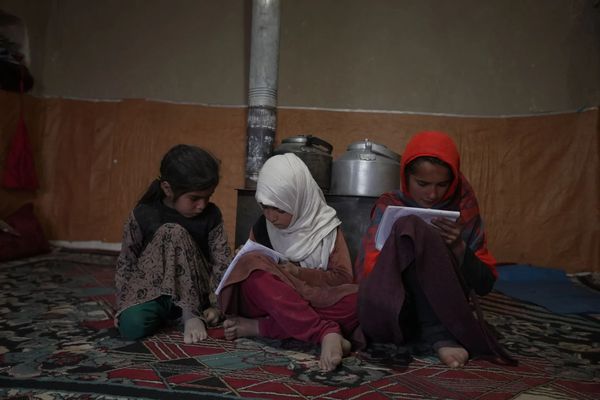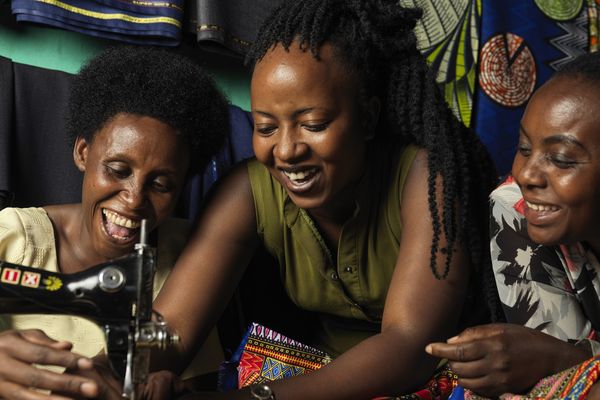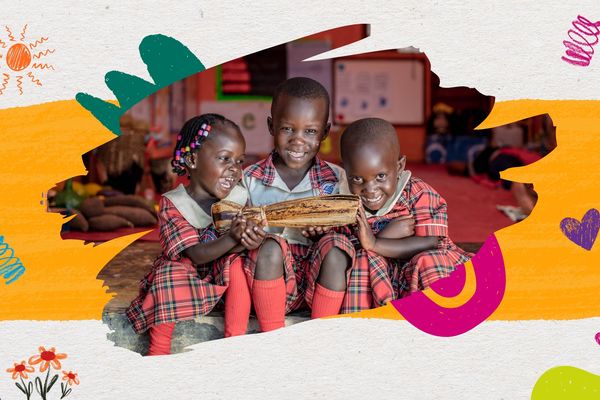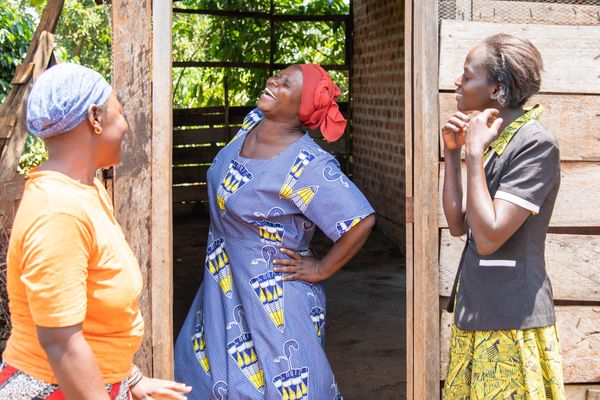Disability shouldn’t hinder a child’s education, yet it does. How do we tackle this?
Date: 24 Jan 2024
Feirooz (not her real name) was just a toddler when her parents noticed something was different about their daughter. By Feirooz’s age, their other children were able to put together short sentences but Feirooz could only babble, signaling a possible speech delay. They soon found out that Feirooz had a hearing impairment and was unable to hear from her right ear which resulted in difficulties with speech as well.
Globally, children with disabilities remain one of the most marginalised groups and are less likely to participate in, and complete their education in comparison to their peers without any disabilities. Feirooz’s situation was no different.
Feirooz is the fourth child among six siblings, born into a family with limited income in Khwaja Ghaib in Afghanistan’s Aybak district. Her parents struggled to provide her with the one-to-one attention she so desperately needed, owing to their own unforgiving schedules. Her mother was solely managing all the children and household chores, while her father tried to make ends meet, leaving both of them with little to no time for Feirooz. While her siblings attended the local school, Feirooz’s parents decided against enrolling her into the same school. They assumed her hearing impairment and speech difficulties would invite ridicule for their child. Their fears were not totally unfounded, as Feirooz was often made fun of and belittled by the other children whenever she tried to engage in play with them. With each passing day, Feirooz withdrew inwards and neither her parents nor her siblings were fully able to understand her difficulties.
In 2023 BRAC established its one-room school, which is also called the community-based education classroom, in Khwaja Ghaib. The school reached out to all families living in poverty to send their children to the school. Feirooz was already seven-years-old by then and her family was initially reluctant to send her. They eventually gave in and started sending Feirooz to the BRAC school with her elder sister in tow. Feirooz was overjoyed, this was the first time she would be attending a school! Her eagerness to learn was evident; within eight months of joining, Feirooz had not only learned to communicate in complete sentences but was also able to read, write, and calculate at a remarkable pace.
The inclusive nature of BRAC’s one-room schools and the extensive training the teachers receive, including in areas of disability inclusion, equips them with the knowledge and skills to provide personalised care to the students. As such, Feirooz’s teacher was fairly aware of how to address her needs, enabling Feirooz to thrive academically and socially.
“As soon as I learned about Feirooz’s case, I made sure to pay special attention to help her learn at the pace she was comfortable in. My training prepared me for this,” says Waheeda (not her real name), Feirooz’s teacher.
Waheeda has so far been trained in child centric approaches, play-based teaching, psychosocial support, safeguarding, child protection, and gender and disability inclusion. She played a crucial role in providing Feirooz with the time and patience needed to understand her unique needs. Waheeda also specifically received training on Mental Health and Psychosocial Support (MHPSS) which instilled in her a deeper understanding of the stress and trauma Feirooz had been through. The MHPSS training focuses on building the capacity of teachers and trainers to understand norms around coping, how to support children living in stress and trauma, what a sense of safety means in specific contexts, and how to build culturally responsive self efficacy.
Feirooz now actively participates in the class and does not shy away from interacting with her peers. She still occasionally struggles while communicating but that does not deter her from trying anyway. Her parents feel both a sense of relief and extreme pride over how far she has come.
“I never imagined she would be able to talk or socialise. I am so proud of how far she has come and I am full of hope for her future,” says Abdul Jabbar, Feirooz’s father.
BRAC’s community-based education model
Our community-based education model focuses on child protection, safeguarding, psychosocial support, and quality of pedagogy through improved teacher training to effectively reach out-of-school children, including children with disabilities. BRAC schools focus on child-friendly, joyful, and participatory approaches over rote learning. The teachers lead playful activities such as songs, dance, art, and games that enable children to build critical soft skills in addition to learning core subjects, such as Maths, English, Geography, and Elementary Science.
Access to quality education is the foundation for a healthy childhood eventually paving a pathway for just, equitable and sustainable societies. Despite all the progress we have made new data by UNESCO shows that the number of children who are out of school has increased by six million globally since 2021, totalling to 250 million out-of-school children as of last year. There is an urgency to address this crisis and BRAC is continuing its education programmes in fragile and conflict settings in Asia and Africa. For over a decade now, we have been working in Afghanistan, Philippines, South Sudan, Liberia, Tanzania, and Uganda, forging stronger partnerships with the local and national governments, providing technical support to education ministries, and designing community-based, inclusive schools to ensure equitable access to educational opportunities for every child, regardless of their circumstances.
Feirooz is one of 14 million learners who have changed their lives with the support of our education programme. Although BRAC’s community-based education model has been adapted based on the specific needs and context of the country, the core aim and model remains unchanged – ensuring smooth transition of children to the next level of education and providing older children, who have either dropped out of or have never been to school, with a chance to complete their education, access to higher education through scholarships to secondary school students, and gain marketable skills through BRAC’s vocational education or placements at technical and vocational education and training institutes. Central to BRAC’s education programme is ensuring that learners and their families are safe when they attend school and thus it is critical to embed social-emotional learning (SEL) into education interventions in addition to academic content to improve learner wellbeing, particularly in conflict and crisis settings. Aside from academic loss, emergency situations present children with extraordinary needs. In order to protect learners during a crisis, BRAC will prioritise continuing to foster learners’ connection to education to prevent dropout, supporting learners to find comfort within a routine, and providing psychosocial, and cognitive support through trained volunteers and teachers. The integration of MHPSS components in programming addresses children’s immediate emotional and cognitive needs and fosters the smooth transition of learners post-emergency back to usual and formal education. Going forward, BRAC aims to develop and implement education interventions aligning with evolving needs in the areas of gender and disability inclusion, climate change adaptation, ICT and digital solutions and inclusion of psychosocial wellbeing.
In a world that is more and more fragmented by rising conflict, it is imperative that our children get the quality and continued education that is so vital to building peaceful societies.
Khatera Mukaramzada is working as a Project Organiser in BRAC Afghanistan.
Fariha Nowrin is a fellow under the Sir Fazle Hasan Abed Fellowship Programme for women.



